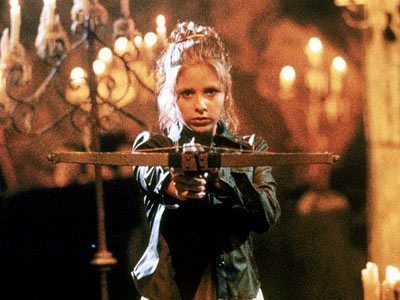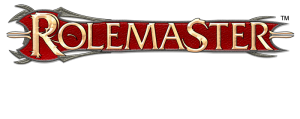
I know this topic might not be necessary for anyone who frequents the Rolemaster Blog, but, as I’ve moved from an Original “Skill-less” style of play back into an RM derivative, I’ve made some observations that might be of interest to some of us here.
In case anyone needs a reminder, Original Dungeons & Dragons (often referred to now as the Original Game) doesn’t contain rules for Skill use. AD&D (1e) might have something in the Dungeon Masters Guide (since I’m currently a player in a Classical 1e game, I’m willfully not privy to this) that provides the option of Secondary Skills, though it should be noted that these are not the detailed “Secondary Skills” we as RMers know but something fuzzier about what a character might have done before leading a life of adventure—a background that might prove relevant for roleplaying in-game situations. I’m going to breeze over AD&D2e, confessing I know nothing about this system, right on to 3e, which is the first version of D&D I ever played. Since my own initial rpg had been Middle-Earth Role Playing, and since I had moved onto such skill-heavy systems as Champions, I didn’t so much as blink at the 3e Skill list and its system of developing these qualities through—wait for it—purchasing and assigning Skill Ranks. If there ever had been any dispute among the more factious in the gaming community, then it would appear that RM had “won”*: Skills were the way to game.
But it appears that something started to happen at about this time, a quiet movement that—at least for me—didn’t make itself known until Pathfinder had taken over for 3/3.5. Many gamers were discovering that they preferred the “old” way of roleplaying. Many were utilizing the Open Game License to write and distribute “retroclones” or revisions of pre-3e iterations of the d20 system. Whether these systems are “simpler” than other forms of gameplay is debatable. Certainly many of them present a less granular and sometimes entirely absent Skill system.
Why? Well, the thesis of Matt Finch’s Swords & Wizardry (which is Finch’s version of OD&D) is that all questions outside of the core rules (and even those very core rules) as presented in 1974 should be settled at individual gaming tables according to the preferences of the participants in those groups. It is understood, I imagine, by most of us here that this is precisely the process through which Rolemaster was birthed. Many people have a preference for granularity in their gaming, and, for many years, this appears to have been the direction of the core industry. The Old School Revival is a standard for those who began to say, “We liked it better before.”
A particular power gamer at my table while I was running Pathfinder caused me to look with more interest at the OSR. “[B]ring the balance back”—a lyric from Led Zeppelin—adorns the back cover of S&W’s second printing. The Pf culture was my first experience with a gamer who actively researched “builds” to defeat the GM. Defeat the GM, you say? Since a GM is often described as the “God” of the rpg, how can that even be possible? Well, some of the standards in Pf appear to protect gamers from bad GMs. It’s generally considered uncool—or the equivalent of a “broken game”—to present the PCs with a combat encounter in excess of Epic rating (CR+3). Noncombat encounters, you say? Well, now we’re back to the subject at hand: Skills.
With problem players (and I don’t intend for this to be a rant about this unsavory topic; we’re leaving this in a moment) Skills can “break the game”: “Well, my Perception is +32. Can I get a roll?” “I want to leap over that wall. My Acrobatics is +28.” As a GM, I wanted my power back. I wanted to decide if it made sense for a character to notice something. I wanted some walls to be unclimbable. I wanted this because I wanted a satisfying story and because I wanted my players to feel challenged.

This can be accomplished without removing Skills altogether, of course. My point is that I explored a Skill-less game in order to start from scratch, to “make the game my own” at its Origin. I quickly found myself reintroducing Skills through mechanics of my own devising. Then, in the course of moving from a “homegrown” system to the MERP derivative Against the Darkmaster, I realized—with a bit of surprise—that Skill systems can encourage better roleplaying.
Skills define the character. This seems obvious in hindsight, but, without that list of capabilities in front of them, some gamers have difficulty making in-game decisions. A list of skills provides ideas and parameters for the gamer, shows the player what his character is good at, and telegraphs goals towards which the character can work through skill development. If the gamer imagines that her character should be good at picking pockets, then he sees that as a clear goal and puts points into that at Level advancement. Perhaps, more importantly, say that within the midst of a campaign a character realizes that she really should be better at tracking. Well, he makes a note and at Level advancement puts ranks into that Skill because, in game, the character realized that skill was important enough to work at it, to improve it.
What shouldn’t be forgotten is that, even if Skill attempts are resolved at the table with die rolls and modifiers, the action should be roleplayed. A criticism that is made by some in the OSR community—most of the time unfairly—is that later, Skill-heavy rpg systems replace roleplaying with mechanical resolution. Even if a Skill Test is involved, a player should describe specifically how a character is performing an action, taking into consideration the GM’s scenario, then the dice should be rolled with modifiers subject to how competent or ludicrous the PC’s intention might be. This isn’t as obvious as it might sound. About a year ago, a friend of mine played in a Starfinder game at a con. He said that the experience felt like a lot of “roll to see what you get.”
Skill rolls should drive the story. This one might be less obvious than the previous considerations. It only came to me after I adopted VsD and started using its Action Resolution Table. There are two very important results in VsD’s chart: Critical Failure and Partial Success. Critical Failure means that a character made the situation worse. For example, in my play-by-post game, a character trying to talk a horse-trader into a good price for his steeds actually convinced the businessman to attempt to steal all the PC’s stuff and hold him hostage. In my tabletop game, a PC led an NPC into the city and then tried to lose him: Partial Success. Okay, maybe on the way back the PC is mobbed by an excitable crowd who never has seen an Elf before, or a nefarious somebody else notices the maneuver, or the dodge brings the PC through an ominous back alley. All of these are exciting, spontaneous, new features in the narrative.
Pf, as written, has a Pass/Fail mechanic. The Original rules set I most recently was using had no mechanic. VsD Skill resolution introduces opportunities for plot complications and narrative twists. I’m not sure if I would be GMing this way had I adopted the RMu playtest instead of VsD. The language in the RMu Maneuvers table, despite its variation, reads very much like Pass/Fail—except for that magical 66, of course!
Anyway, those are my thoughts: Skills give players something measurable to define their characters by and Skill resolution mechanics should contribute to meaningful storytelling.
*I’m not sure that there had been factions: the pre-Internet late-80s/early 90s seemed to be a different time, and all the D&Ders I had known were politely interested in and perhaps secretly envious of how I claimed to understand and play something as arcane as MERP.





